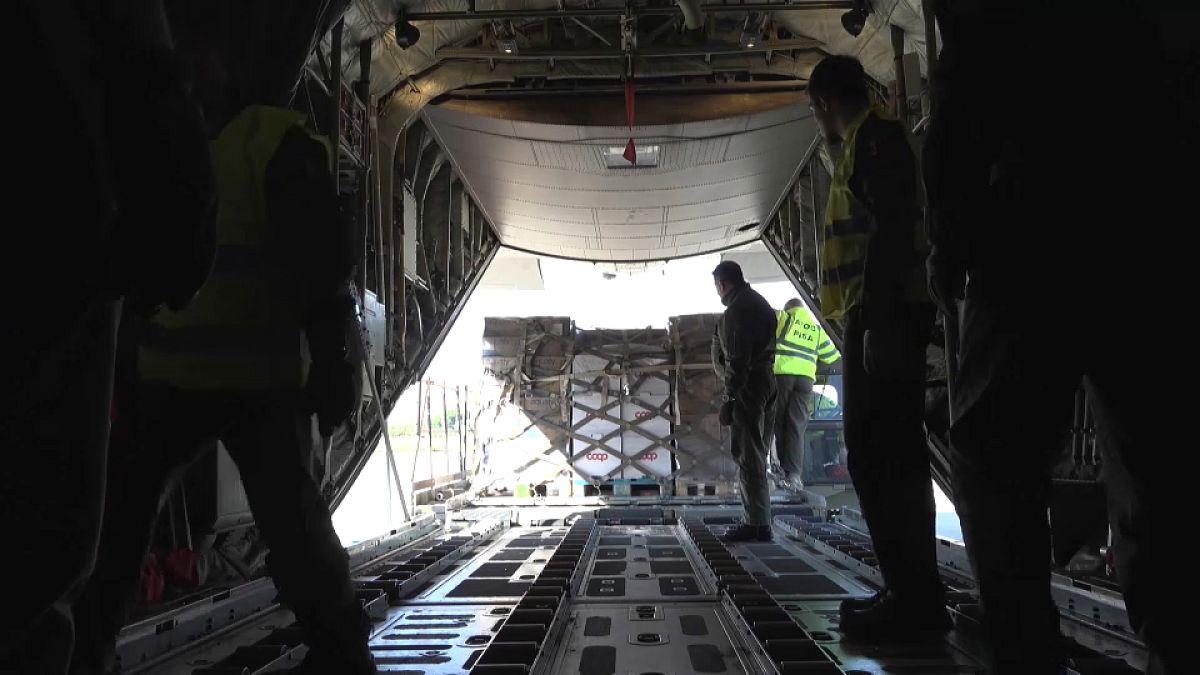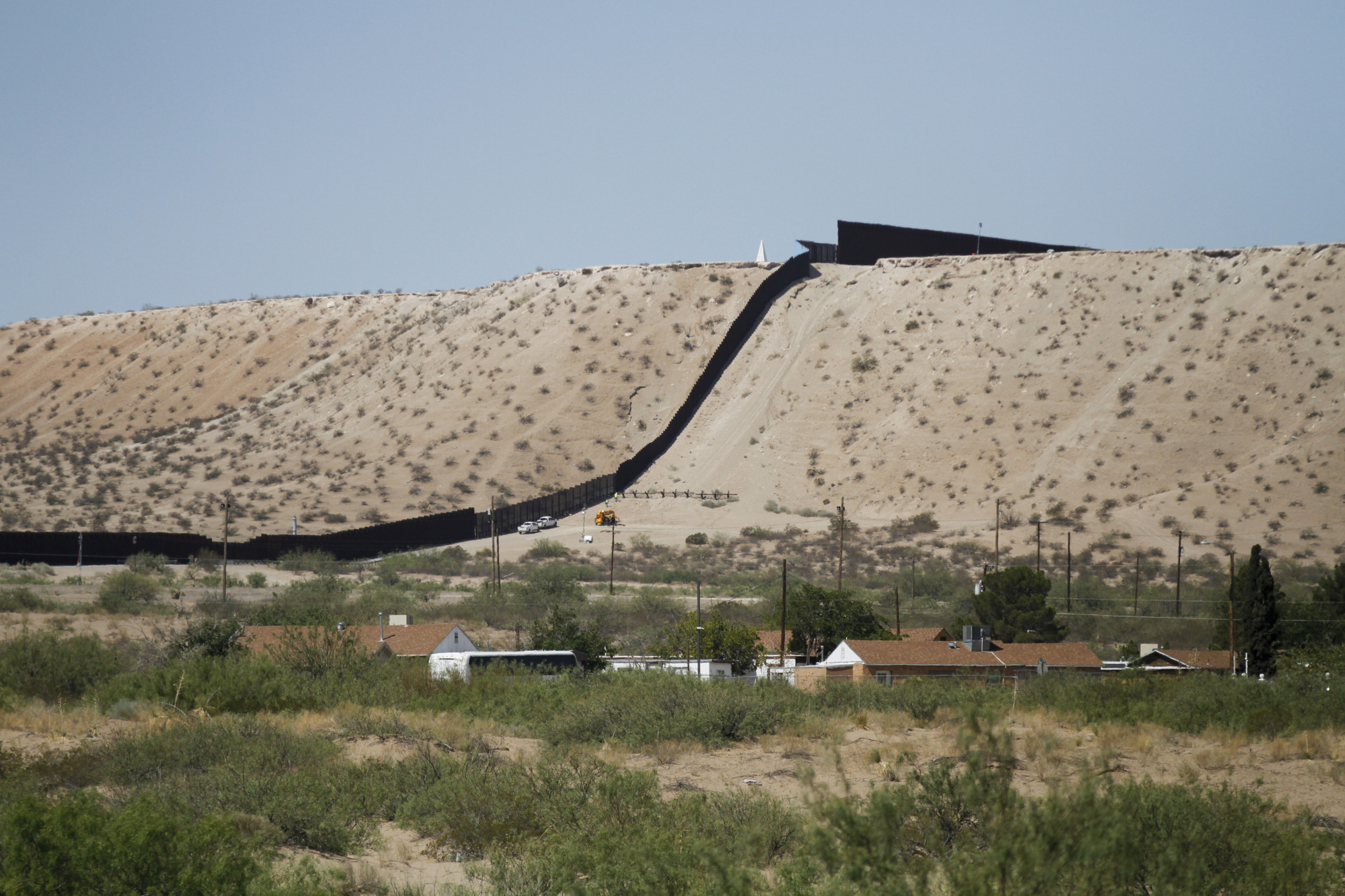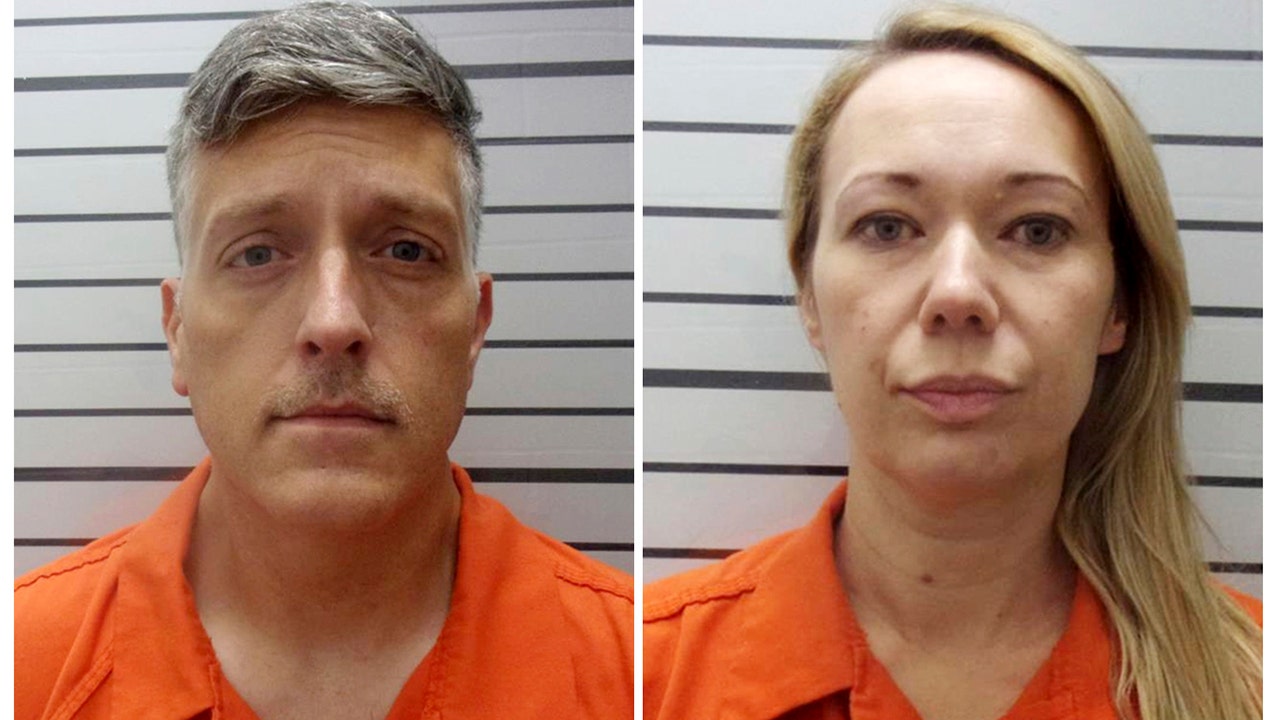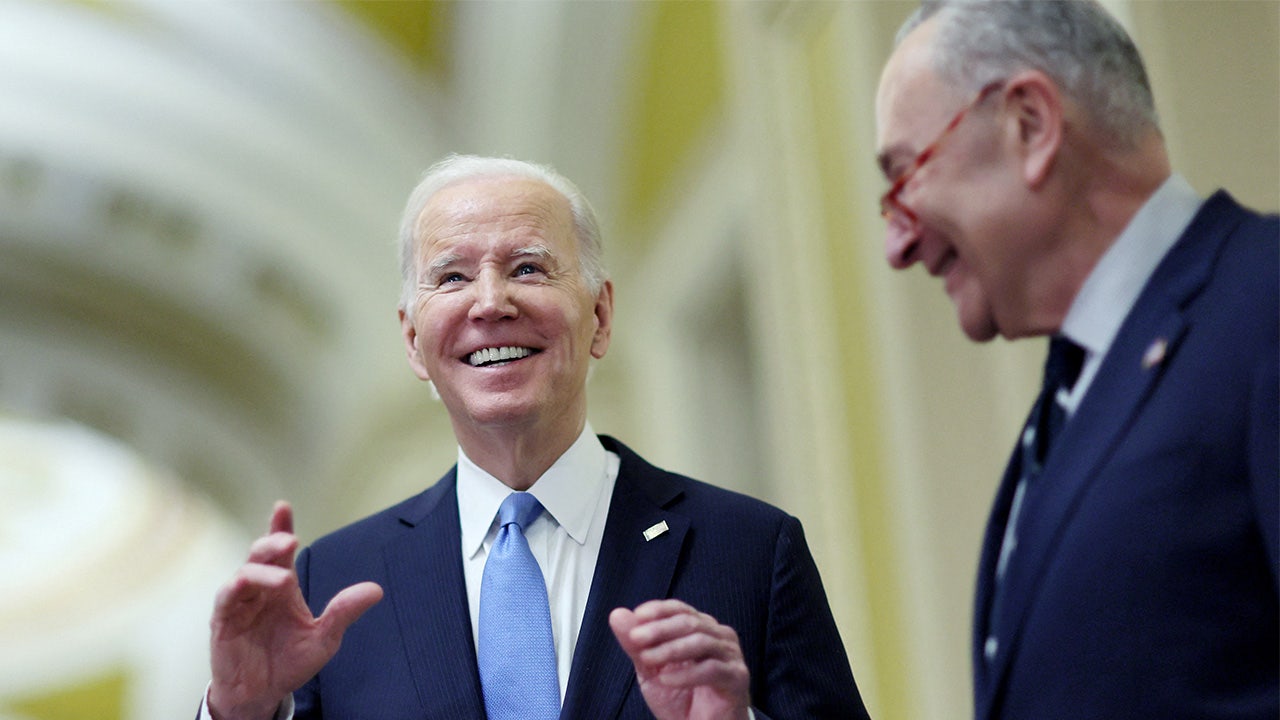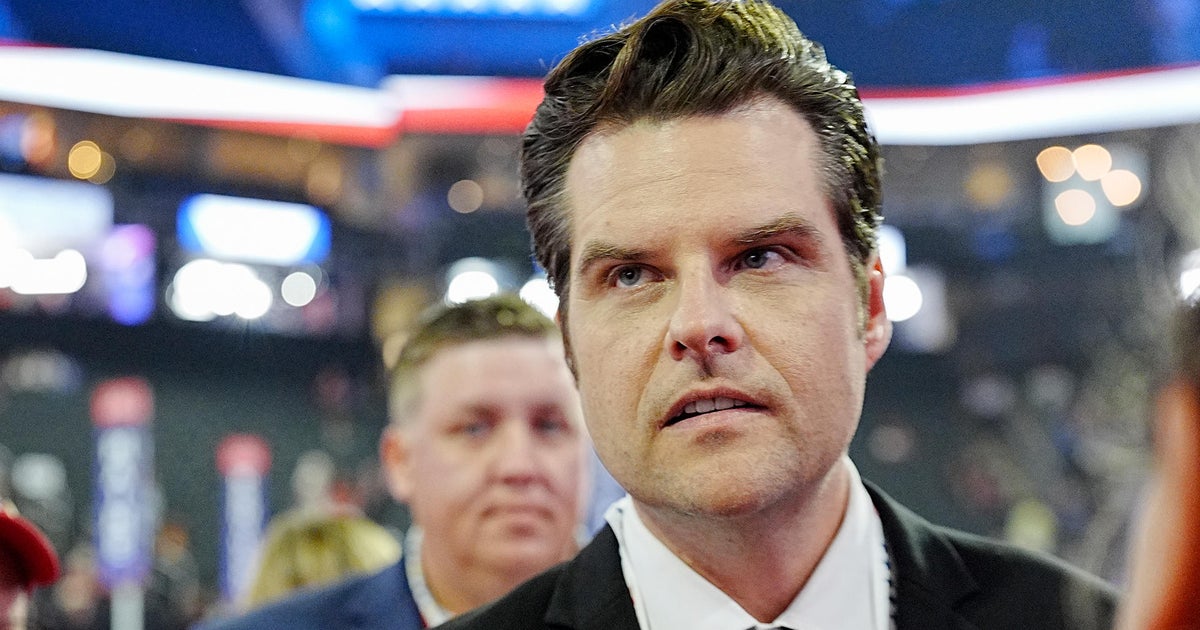World
What the Niger coup means for Europe’s relationship with the Sahel
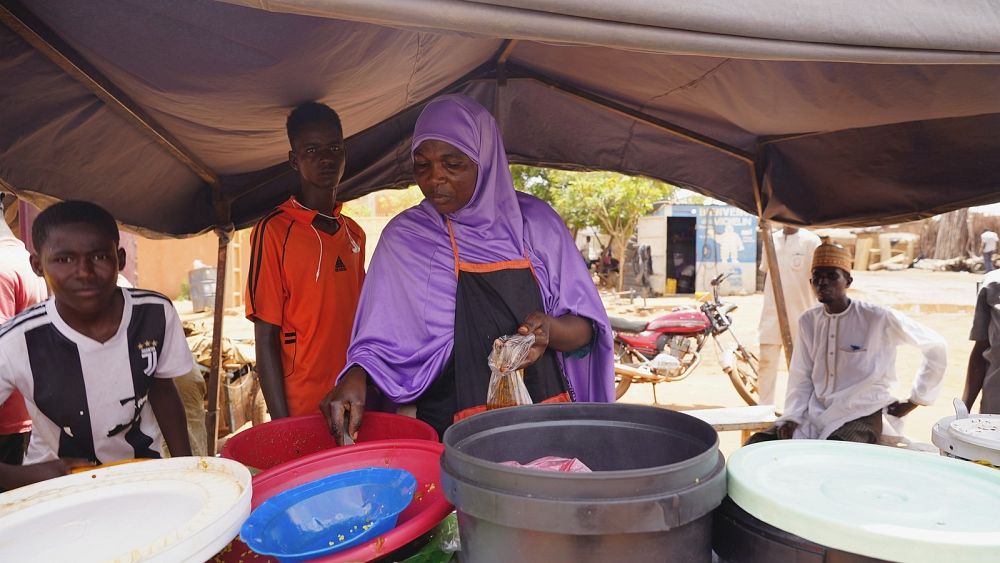
Niger was seen as the last bastion of democracy in the Sahel region. The ousting of its democratically elected President is a harsh setback for EU efforts to address the double-edged challenge of security and development in the region.
On his visit to Niger in early July, the EU’s top diplomat Josep Borrell described the country as an essential EU partner at the heart of the Sahel, the semi-arid region that stretches West to East south of the Sahara desert.
Just weeks later, Niger became the latest domino in a row of states that have toppled into the hands of military juntas.
The European Union and its member states are the Sahel’s biggest donors of security and development aid, aimed at helping the region address the interconnected challenges of armed conflicts, chronic poverty and terrorist threats, all of which are compounded by vulnerability to climate change.
But EU strategies have failed to prevent conflicts from splintering across the region. Since 2021, military coups have successfully tumbled the governments of Burkina Faso, Mali and Guinea. With these states now backing the putsch in Niger, Europe’s strategy in the Sahel risks unravelling.
EU support ‘fragmented’
The EU has spent an estimated €8 billion on security and humanitarian aid in the Sahel since 2014. It also channels funds through the Sahel Alliance of 12 countries, currently presided by Germany, which has spent €22.97 billion on cooperation projects to date. Member states also have their own Sahel initiatives, including military missions aimed at containing sprawling jihadist groups.
France’s nine-year anti-insurgent mission in Mali, which ended last year, has been described as counterproductive, with terrorist insurgency spiralling and France’s popularity amongst Malians plummeting in opinion polls.
But Niger was considered a bastion of hope.
“The West saw Niger as a successful military partnership. Nigerien security professionals were regarded as receptive to support and were better at fending off threats. But naturally, there has been concern about political stability for some time, with stability seen as tentative and fragile,” Andrew Lebovich, Research Fellow at the Clingendael Institute, said.
Western and EU actors have only recently managed to coordinate operations.
“The collaboration between European actors has become more constructive over recent years, but the more actors there are, the more resources are also bound on the country partner’s side. Beyond, there is – structurally – no coherent European leadership, and this brings about fallouts which are inevitable,” Volker Hauck, senior executive at the centre for Europe-Africa relations, told Euronews.
“There are still differing interests at the political level, including between Brussels and the member states,” he added.
Suspension of funds potentially devastating
Western budget support to Niger has been suspended in response to the coup, risking further impoverishment.
“Europe and the US have over the years invested an important amount of military assistance, political capital and development and cooperation funding,” Lebovich said, “Niger was dependent on some 45% of its funding from international actors. If that aid remains cut off, it could be devastating to Niger and its citizens.”
Replacing the funds will be challenging, with the West African Central Bank halting Nigerien transactions and freezing assets.
“If they are very determined they might find alternative ways of replacing their assets, but it’s inevitable that the whole country will destabilise,” Hauck explained.
European ‘legitimacy’ undermined
Many world powers have a strategic, commercial presence in the Sahel, including China and Turkey. Europe and the West have found themselves competing in a complex web of foreign influence.
In recent years the presence of Russian mercenaries such as the Wagner group has increased, particularly in Mali, despite Bamako repeatedly denying their presence. Wagner’s leader Yevgeny Prigozhin appeared to endorse the Niger coup in a voice message posted on social media channels this week.
With Western capacity to support the Sahel now undermined further, Europe faces a deeper, underlying problem of legitimacy.
“Niger was key for European legitimacy in the region: it showed it was possible to support partners which aligned with EU values and interests in one of the most complex regions of the world,” Hauck said.
An intersection for migrants
Millions of forcibly displaced people, porous borders and organised crime groups make Niger and the wider Sahel a convenient corridor for migrant smugglers between sub-Saharan Africa and the Maghreb.
In 2022, conflicts drove the forcibly displaced population in the Sahel to 4.1 million people, up from 3.6 million the year before. In response, the EU and Niger launched an operational partnership to tackle migrant smuggling, which involved a working arrangement with Frontex, the EU border agency.
Increasing instability and insecurity could increase migratory flows, and the EU’s debilitated position of influence could hamper its efforts to cooperate with Sahel countries to curb the activities of illegal migrant smugglers, according to Hauck.
Niger’s future uncertain
While the Niger coup has put the international community on alert, the newly proclaimed leaders have so far broadcast an image of stability. But as the ECOWAS bloc of African countries threatens to use force, Niger’s future hangs in the balance.
European efforts to support Niger in curbing terrorism, tackling poverty and preparing for climate-related threats are also severely undermined. Experts believe that in a country so heavily dependent on foreign aid, which now risks being cut off permanently, citizens will be the first ones to feel the harsh repercussions.

World
Jon Hamm’s Your Friends & Neighbors Renewed at Apple TV+ Ahead of Series Premiere — Get Release Date

ad
World
Israel keeping its ‘eyes open’ for Iranian attacks during Trump transition period, ambassador says
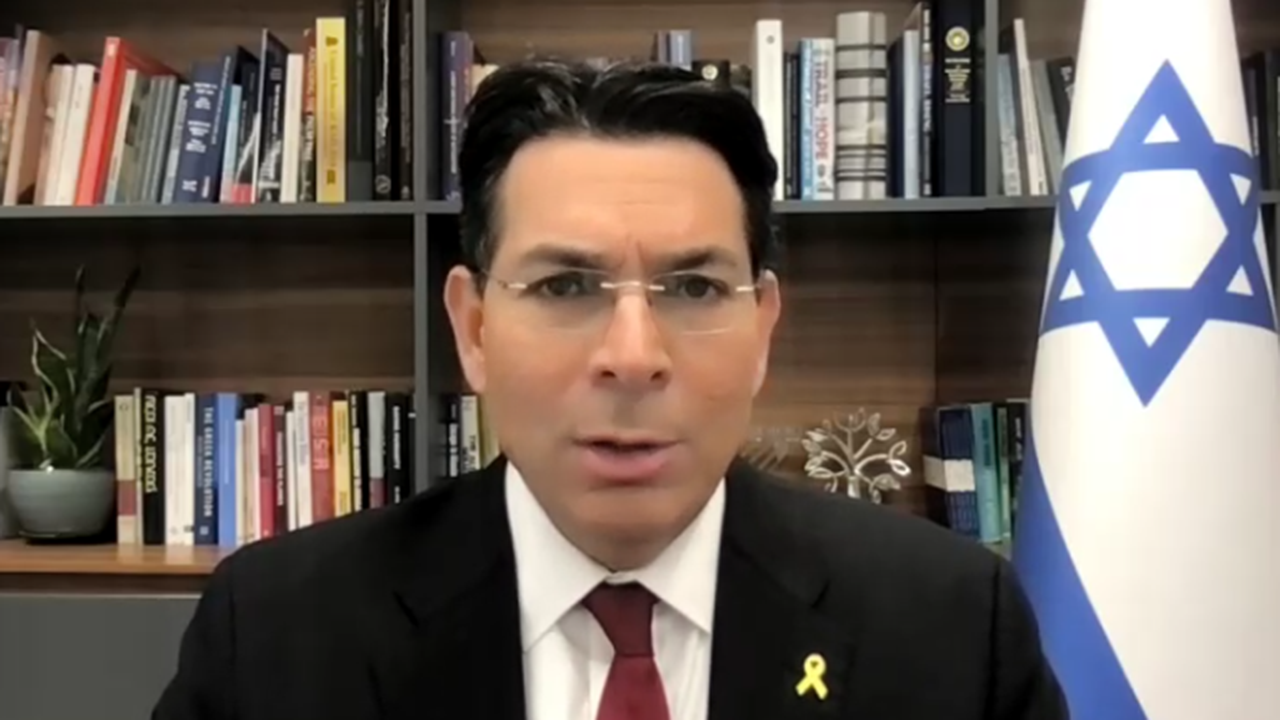
Israel’s U.N. Ambassador Danny Danon tells Fox News Digital that his country is keeping its “eyes open” for any potential aggression from Iran during the Trump transition period, adding it would be a “mistake” for the Islamic Republic to carry out an attack.
The comments come after Iranian Foreign Minister Abbas Araghchi vowed earlier this week that Iran would retaliate against Israel for the strategic airstrikes it carried out against Tehran on Oct. 26. Araghchi was quoted in Iranian media saying “we have not given up our right to react, and we will react in our time and in the way we see fit.”
“I would advise him not to challenge us. We have already shown our capabilities. We have proved that they are vulnerable. We can actually target any location in Iran. They know that,” Danon told Fox News Digital.
“So I would advise them not to make that mistake. If they think that now, because of the transition period, they can take advantage of it, they are wrong,” he added. “We are keeping our eyes open and we are ready for all scenarios.”
ICC REJECTS ISRAELI APPEALS, ISSUES ARREST WARRANTS FOR BENJAMIN NETANYAHU, YOAV GALLANT
Israel’s U.N. Ambassador Danny Danon tells Fox News Digital that his country is “ready for all scenarios” coming from Iran during the Trump transition period. (Fox News)
Danon says he believes one of the most important challenges for the incoming Trump administration will be the way the U.S. deals with Iran.
“Regarding the new administration, I think the most important challenge will be the way you challenge Iran, the aggression, the threat of the Iranian regime. I believe that the U.S. will have to go back to a leading position on this issue,” he told Fox News Digital.
“We are fighting the same enemies, the enemies of the United States of America. When you look at the Iranians, the Houthis, Hezbollah, Hamas, all those bad actors that are coming against Israel… that is the enemy of the United States. So I think every American should support us and understand what we are doing now,” Danon also said.
IRAN HIDING MISSILE, DRONE PROGRAMS UNDER GUISE OF COMMERCIAL FRONT TO EVADE SANCTIONS
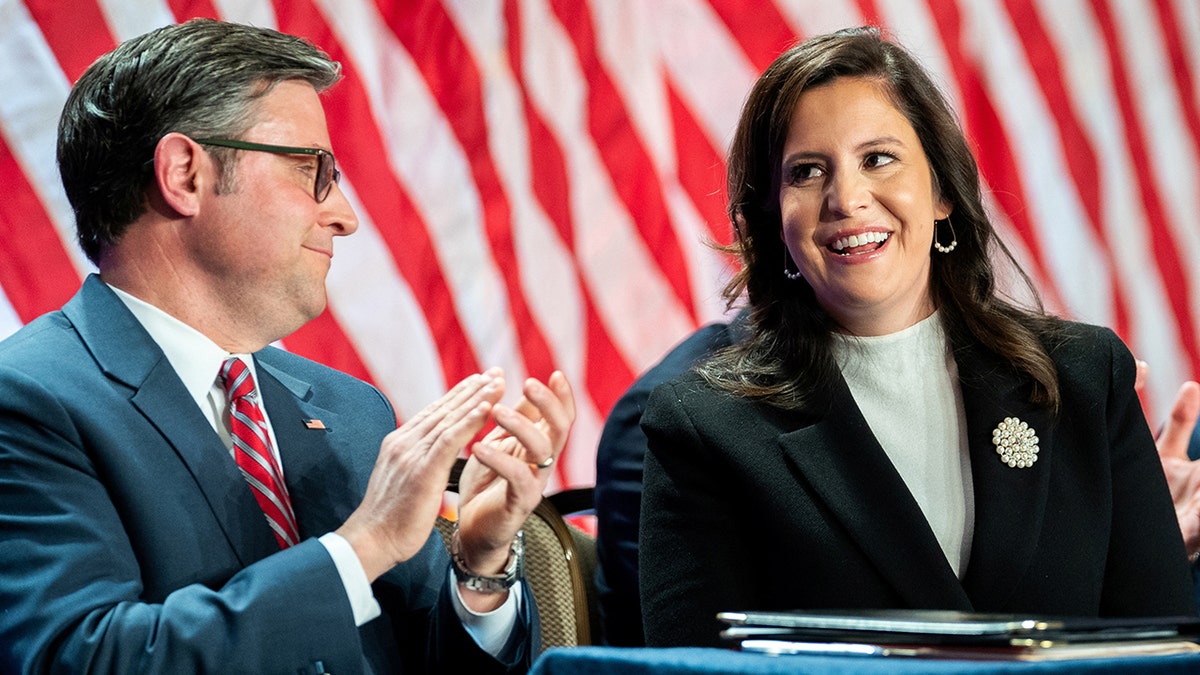
Rep. Elise Stefanik, R-N.Y., is acknowledged by President-elect Donald Trump alongside Speaker of the House Mike Johnson during a meeting with House Republicans at the Hyatt Regency hotel in Washington, D.C., on Nov. 13, 2024. Stefanik has been chosen by President-elect Donald Trump as the next U.S. ambassador to the United Nations. (Allison Robbert/Pool via REUTERS)
Danon spoke as the U.S. vetoed a draft resolution against Israel at the U.N. Security Council on Wednesday.
The resolution, which was overseen by Algeria, sought an “immediate, unconditional and permanent cease-fire” to be imposed on Israel. The resolution did not guarantee the release of the hostages still being held by Hamas within Gaza.
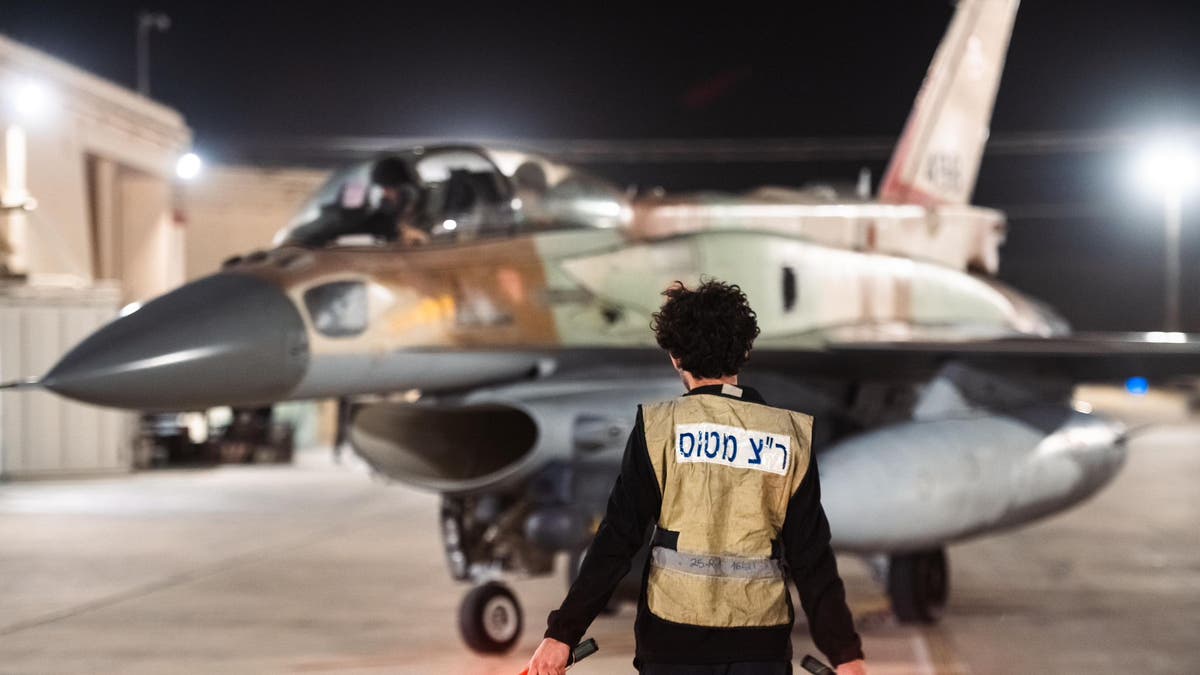
Israeli Air Force planes departing for the strikes in Iran on Oct. 26. (IDF Spokesman’s Unit)
“It was a shameful resolution because… it didn’t have the linkage between the cease-fire and the call [for] the release of the hostages. And I want to thank the United States for taking a strong position and vetoing this resolution,” Danon said. “I think it sent a very clear message that the U.S. stands with its strongest ally with Israel. And, you know, it was shameful, too, to hear the voices of so many ambassadors speaking about a cease-fire but abandoning the 101 hostages. We will not forget them. We will never abandon them. We will continue to fight until we bring all of them back home.”
Fox News’ Benjamin Weinthal contributed to this report.
World
Fact-check: What do we know about Russia’s nuclear arsenal?

Moscow has lowered the bar for using nuclear weapons and fired a missile capable of carrying a nuclear warhead into Ukraine, heightening tensions with the West.
Russia’s nuclear arsenal is under fresh scrutiny after an intermediate-range ballistic missile capable of carrying an atomic warhead was fired into Ukrainian territory.
President Vladimir Putin says the unprecedented attack using the so-called “Oreshnik” missile is a direct response to Ukraine’s use of US and UK-made missiles to strike targets deep in Russian territory.
He has also warned that the military facilities of Western countries allowing Ukraine to use their weapons to strike Russia could become targets.
The escalation comes days after the Russian President approved small but significant changes to his country’s nuclear doctrine, which would allow a nuclear response to a conventional, non-nuclear attack on Russian territory.
While Western officials, including US defence secretary Lloyd Austin, have dismissed the notion that Moscow’s use of nuclear weapons is imminent, experts warn that recent developments could increase the possibility of nuclear weapons use.
Here’s what we know about Russia’s inventory of atomic weapons.
How big is Russia’s nuclear arsenal?
Russia holds more nuclear warheads than any other nation at an estimated 5,580, which amounts to 47% of global stockpiles, according to data from the Federation of American Scientists (FAS).
But only an estimated 1,710 of those weapons are deployed, a fraction more than the 1,670 deployed by the US.
Both nations have the necessary nuclear might to destroy each other several times over, and considerably more atomic warheads than the world’s seven other nuclear nations: China, France, India, Israel, North Korea, Pakistan and the United Kingdom.
Of Moscow’s deployed weapons, an estimated 870 are on land-based ballistic missiles, 640 on submarine-launched ballistic missiles, and potentially 200 at heavy bomber bases.
According to FAS, there are no signs Russia is significantly scaling up its nuclear arsenal, but the federation does warn of a potential surge in the future as the country replaces single-warhead missiles with those capable of carrying multiple warheads.
Russia is also steadily modernising its nuclear arsenal.
What could trigger a Russian nuclear response?
Moscow’s previous 2020 doctrine stated that its nuclear weapons could be used in response to an attack using nuclear or other weapons of mass destruction “when the very existence of the state is put under threat.”
Now, the conditions under which a nuclear response could be launched have changed in three crucial ways:
- Russia will consider using nuclear weapons in the case of a strike on its territory using conventional weapons, such as cruise missiles, drones and tactical aircraft.
- It could launch a nuclear attack in response to an aggression by a non-nuclear state acting “with the participation or support of a nuclear state”, as is the case for Ukraine.
- Moscow will also apply the same conditions to an attack on Belarus’ territory, in agreement with President Lukashenko.
Is there a rising nuclear threat?
The size of the world’s nuclear stockpiles has rapidly decreased amid the post-Cold War détente. The Soviet Union had some 40,000 warheads, and the US around 30,000, when stockpiles peaked during the 1960s and 70s.
But FAS warns that while the overall number is still in decline, operational warheads are on the rise once again. More countries are also upgrading their missiles to deploy multiple warheads.
“In nearly all of the nuclear-armed states there are either plans or a significant push to increase nuclear forces,” Hans M. Kristensen, Director of the Nuclear Information Project at the Federation of American Scientists (FAS), said in June this year.
Is the West reacting?
When Putin approved the updated nuclear protocol last week, many Western leaders dismissed it as sabre rattling.
German Foreign Minister Annalena Baerbock said Germany and its partners would “not be intimidated” and accused Putin of “playing with our fear.”
But since Russia used a hypersonic ballistic missile capable of carrying a nuclear warhead in an attack on Dnipro, European leaders have raised the alarm.
“The last few dozen hours have shown that the threat is serious and real when it comes to global conflict,” Polish Prime Minister Donald Tusk said on Friday.
According to Dutch media reports, NATO’s secretary-general Mark Rutte is in Florida to urgently meet President-elect Donald Trump, potentially to discuss the recent escalation.
NATO and Ukraine will hold an extraordinary meeting in Brussels next Tuesday to discuss the situation and the possible allied reaction, according to Euronews sources.
-
Business1 week ago
Column: OpenAI just scored a huge victory in a copyright case … or did it?
-

 Health1 week ago
Health1 week agoBird flu leaves teen in critical condition after country's first reported case
-

 Business6 days ago
Business6 days agoColumn: Molly White's message for journalists going freelance — be ready for the pitfalls
-
World1 week ago
Sarah Palin, NY Times Have Explored Settlement, as Judge Sets Defamation Retrial
-

 Science3 days ago
Science3 days agoTrump nominates Dr. Oz to head Medicare and Medicaid and help take on 'illness industrial complex'
-

 Politics5 days ago
Politics5 days agoTrump taps FCC member Brendan Carr to lead agency: 'Warrior for Free Speech'
-
/cdn.vox-cdn.com/uploads/chorus_asset/file/25739950/247386_Elon_Musk_Open_AI_CVirginia.jpg)
/cdn.vox-cdn.com/uploads/chorus_asset/file/25739950/247386_Elon_Musk_Open_AI_CVirginia.jpg) Technology4 days ago
Technology4 days agoInside Elon Musk’s messy breakup with OpenAI
-

 Lifestyle5 days ago
Lifestyle5 days agoSome in the U.S. farm industry are alarmed by Trump's embrace of RFK Jr. and tariffs
